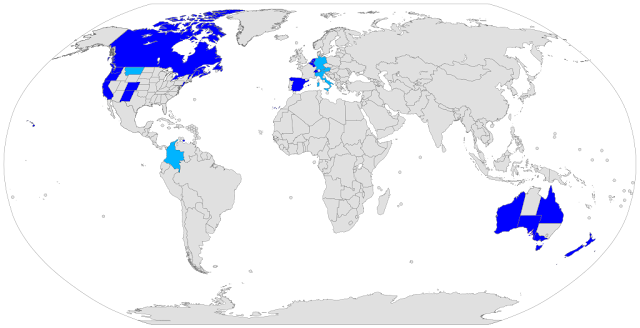Helping children cope with a traumatic event (First Draft)
 I've been working on this article for a long time - and I'm still not finished - but due to current local events, I'm publishing the current state of it.
I've been working on this article for a long time - and I'm still not finished - but due to current local events, I'm publishing the current state of it.
After a traumatic event, it is possible to help children feel safe with comfort, support, and assurance. We can help them deal with their fears, grief, and help them recover in a healthy way.
I have put together the following tips and recommendations based on studies and support from psychiatrists, psychologists, and mental health experts who specialize in crisis situations. Whenever possible, I tried to provide simple tips on what to expect, what to do, and what to look out for. IMPORTANT - If you, or children or teenagers need support for their mental health, do not hesitate to contact a doctor or another health care provider for help or a recommendation.
1. Tips to assist children after the event
- Make the child feel safe and secure. This includes physical closeness - all children, from toddlers to teenagers, will benefit from it - extra cuddling, hugs, or simply a soothing gesture, stroking, touch. This gives children and teenagers a feeling of security, which is so important after a frightening or disturbing event.
- Stick to routines. Amidst chaos and changes, routines help soothe everyone, adults and children alike, and make life feel balanced again. For example, regular meal and bedtime schedules, and yes, eating can be hard in such times.
- Sense of normality or happiness. Help children have fun. Encourage children to carry out activities and engage in sports, play games. This distraction is good for them and gives them a sense of normality, possibly even happiness - in any case, activities, help process thoughts.
- Share information age-appropriately and talk about what has happened. It's always best to learn the details of a traumatic event from a safe, trustworthy adult. Be concise and honest, and most importantly, let the children ask questions.
- Choose good times, spaces, and environments to talk. Look for natural opportunities for conversation - not forced!
- Media consumption - Limit or avoid intentional or unintentional exposure to news and images. This is especially important for toddlers and schoolchildren, as reports, videos, images, comments on social media channels about disturbing events can give the impression that they continue, expand.
- Understanding Individuality - It requires understanding from adults and parents that children deal with situations in different ways. Some might want to spend more time with friends and relatives; others might want to spend more time alone.
- Listen attentively - not just hear - listen! It's important to understand your child's perspective on the situation and what seems confusing or disturbing to them.
- Movement and breathing exercises bring peace and balance - Help children relax with movement and breathing exercises. When anxious, breathing becomes shallow; deep belly breathing can help children calm down. You can hold a feather or a cotton ball in front of your child's mouth and ask them to blow on it by exhaling slowly. Or you can say, "Let's breathe in slowly while I count to three, then exhale while I count to three." Place a stuffed animal or pillow on your child's stomach while they lie down, and ask them to breathe in and out slowly and watch the stuffed animal or pillow move up and down.
- Recognize feelings - Feelings are individual - If a child admits to being worried, don't respond with, "Oh, don't worry," because they may then feel embarrassed or criticized. Simply acknowledge what you hear: "Yes, I see that you're worried."
- "I don't know." is OK to say. As an adult, as parents, know and accept that it's okay to answer, "I don't know," because what children need most is someone they trust who listens to their questions, accepts their feelings, and is there for them.
2. Tips for handling children well - days and weeks later
- Accept assistance. Although anxiety and other problems can persist for months, you should immediately seek help from your general practitioner or a mental health professional if anxiety and other problems don't lessen, or if your child begins to have:
- Nightmares
- Flashbacks, lingering memories
- Avoidant behavior
- Sleep disorders
- Distance
- Emotional exhaustion
- Unhappiness
- Hearing voices
- Experiencing panic attacks
- Thoughts of harming oneself or others
- … develop or experience the mentioned things.
- Watch for signs of trauma. Within the first month after a disaster, it is common for children to appear mostly okay. After that, the numbness may wear off and children might exhibit more symptoms - especially children who have experienced injuries or deaths, lost immediate family members, previously experienced traumatic events in their life, or are yet to settle in a new home.
- Questions and situations take time to develop. Consider that questions may remain. Since the effects of a traumatic event and its psychological responses can involve an individual and constantly changing phases, children may have questions more than once. Let them know that you are always ready to talk. Children need to digest information at their own pace and questions may arise out of the blue.
- Discussing death. Encourage families to talk about the death of a loved one, including in cases of suicide, in an age-appropriate and helpful manner (See Talking about Death - Talking to Children about Suicide). When families can talk and grieve together, it is more likely to be positive and encouraging for children to share their feelings - feelings need space.
and few more points…
- Self-care - Take care of yourself. Only those who take care of themselves can be there for others, for the child, and best help the child. Talk to friends and relatives about the situation; forming a support group may be helpful, such as self-help groups of affected parents and others. Or, if you belong to a church or community group, there might be options there as well. There are also forms of support groups in a friends and family environment.
- Try to eat properly, drink plenty of water, stick with exercise or other routines, and get enough sleep. Physical health protects against emotional vulnerability.
- As mentioned before, breathing and other meditation exercises can help reduce stress.
- Accept and allow help - If you suffer from anxiety or severe anxiety, notice aspects that I previously mentioned for children (nightmares up to thoughts of self-harm or harm to others - see above), or other aspects that affect you or your life, seek help from a doctor or mental health professional. Recognize your need for help and get help. Do this for your child's sake, if for no other reason - this appeal is particularly directed at men, who tend to be able to sort everything out by themselves.
- Responsibilities and regular daily routines are good, helpful... - but don't overburden children too much with responsibilities. It's very important not to overload children with tasks or give teenagers "adult tasks," as this can be too stressful for them. Instead, you should reduce your expectations of chores and educational demands in the near future, although it's good to have them perform some tasks.
- Provide special help for children with special needs. These children may need more time, support, and guidance than other children. You might need to simplify the language you use and repeat things quite often. You may also need to adapt information to your child's strengths; for example, a child with a speech disability may better understand information through the use of visual materials or other communication tools you are used to.





Your comments are very welcome - and please let me know whether there is the need for an 'handmade' translation :-)
ReplyDelete